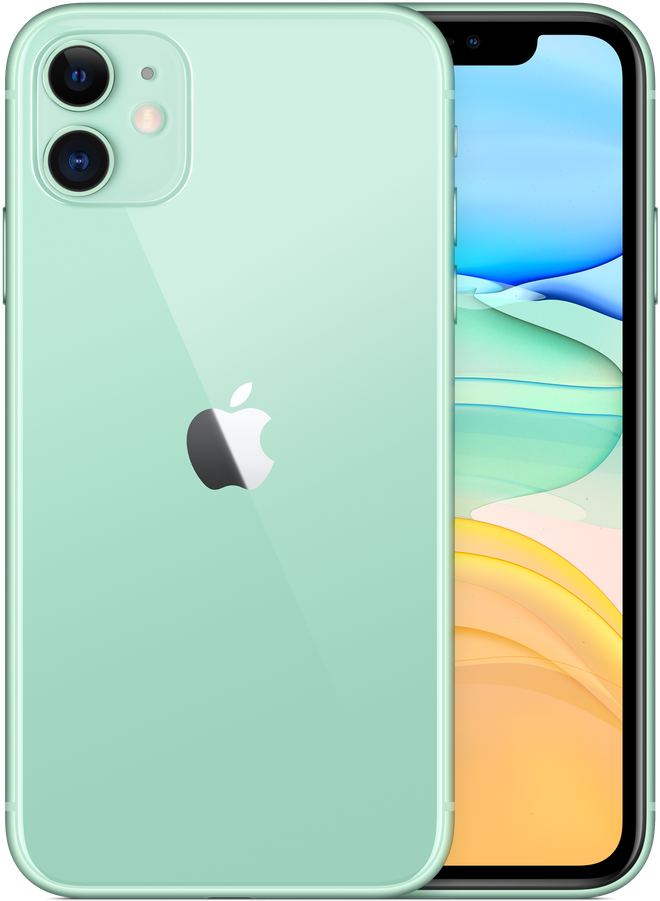Aside from a cursory interest in the iOS ecosystem, I haven't cared much for iPhones over the years. The last iPhone I used with any regularity was the iPhone 6 Plus, and even then, it ended up being a secondary phone. Since then, I've used over a hundred Android phones, from $100 budget models to the best that Samsung, Google, and Huawei have to offer.
I like using Android phones because of the sheer variety of options available from a hardware point of view — Xiaomi's 108MP Mi Note 10 is a perfect illustration of this. From bezel-less designs to RGB lighting and exciting gradient finishes, Android is what it is today because of its diversity.
The iPhone looks boring by comparison: the notch hasn't changed in two years, the design at the back is far from enticing, and Apple hasn't switched to USB-C on its phones yet. But as I found out in the month that I used the iPhone 11, it gets a lot of things right — particularly those that Android makers still continue to struggle with.
Performance that's in a class of its own
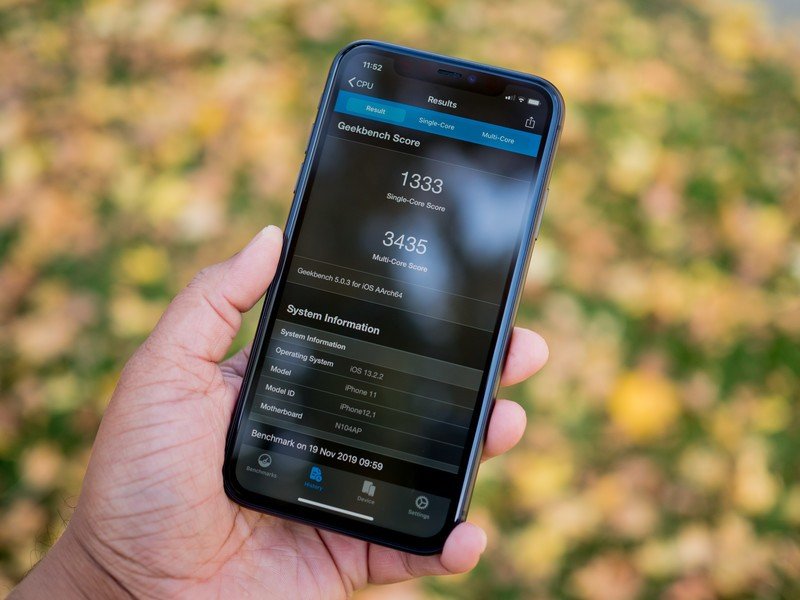
Apple is in a unique situation where it has full control over both hardware and software, allowing it to create a user experience that's currently unmatched. The iPhone 11 features Apple's A13 Bionic chipset, and in the mobile space, it has no equal. If you're using an Android phone, it is powered by designs from one of four manufacturers: Qualcomm (Snapdragon), Samsung (Exynos), HiSilicon (Kirin), and MediaTek.
Apple's A13 Bionic is the fastest mobile chipset in the world today — the Snapdragon 855+ doesn't come close.
It doesn't matter what SoC your Android phone is using — it could be the Snapdragon 855+ or the Kirin 980 — it isn't as fast as the A13 Bionic. Heck, the latest chipsets from the likes of Qualcomm and HiSilicon are still not on par with last year's A12 Bionic.
Just by looking at the specs, the A13 Bionic doesn't seem all that impressive: it has a six-core design with two powerful cores at 2.66GHz (dubbed Lightning) and four energy-efficient cores that go up to 1.80GHz (called Thunder). By contrast, the Snapdragon 855+ has eight cores, with the high-performance core hitting 2.96GHz.
But the differentiation with the A13 Bionic comes in the way it is put to use. Unlike Android chip vendors like Qualcomm — who need to cater to a wide variety of manufacturers — Apple is able to control every facet of the chip design from the transistor level all the way to the software and system architecture, leading to performance and energy efficiency that you just won't find on Android. Year after year, Apple introduces faster and more energy-efficient designs that raise the bar for the mobile SoC segment.
Get the latest news from Android Central, your trusted companion in the world of Android
This year is particularly interesting, because the A13 Bionic brings huge improvements in both performance and efficiency. The chipset is 20% faster than the A12 while consuming 30% less energy, resulting in much better battery life for the iPhone 11 series. Sure, this year's iPhones have larger batteries as well, but the A13 offers sizable gains in this front as well. Oh, and the A13 Bionic also has a custom eight-core neural engine that enables computational photography with the new Night Mode and Deep Fusion.
OnePlus is the only Android manufacturer that comes close to emulating the iPhone's responsiveness.
So, even though the iPhone 11 has just 4GB of RAM, you won't see any slowdowns because of the way iOS is built. 4GB of RAM gives you more than enough headroom for multitasking, and in the month I used the iPhone 11, there was never a time where it felt laggy.
The only Android maker that comes close to delivering iPhone levels of fluidity is OnePlus. The Chinese manufacturer has done a remarkable job optimizing OxygenOS, and the clean interface coupled with top-notch hardware and a 90Hz display gives OnePlus an edge over its Android rivals.
So will you be able to see this kind of vertical integration on Android anytime soon? Not likely. Only three manufacturers have the resources to pull this off — Google, Samsung, and Huawei — and even then, it is a monumental undertaking.
The ability to control hardware and software is unique to Apple, and that won't change anytime soon.
Samsung has been making custom Mongoose cores for its high-end Exynos chipsets for four years now, but the going has been tough. Last year's Galaxy S9 had several battery life issues, and it had to throttle the design to make it usable. This year's M4 core was a more modest update, and it now looks like Samsung is winding down development of its custom core and will instead use ARM's Cortex designs going forward.
And while Huawei subsidiary HiSilicon makes its own chipsets, it uses off-the-shelf ARM Cortex cores instead of a semi-custom design like Qualcomm. With Huawei's current tribulations in the U.S., it doesn't look like making its own custom cores is a priority for the brand.
That leaves Google. You'd think that Google is the ideal manufacturer to come up with its own line of chipsets given how much the Pixels take after iPhones. But four years of releases have shown that Google just doesn't have the ambition to innovate on the hardware front. The search giant is instead leveraging its software might to provide differentiation, and while it has dabbled in its own hardware in the form of the Pixel Visual Core, don't hold out for custom silicon from Google.
Seamless updates for five years
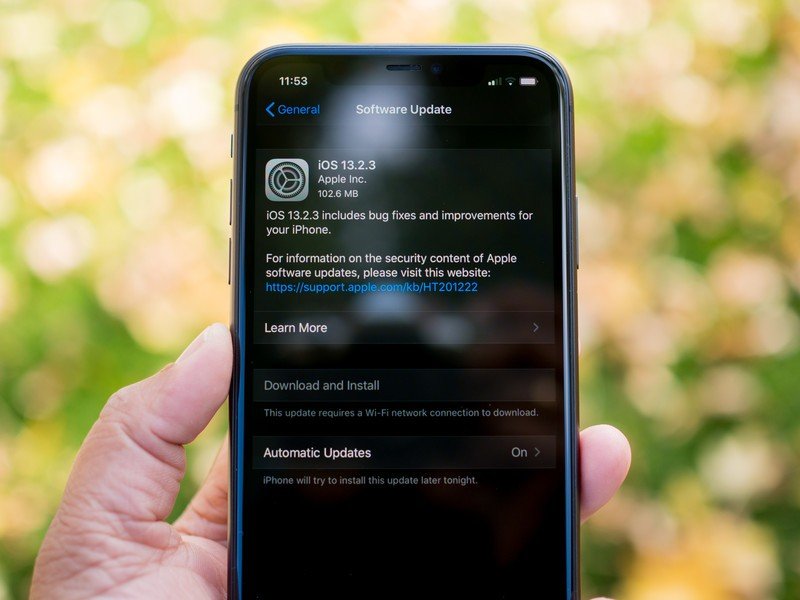
Updates continue to be a sore point on Android, with most manufacturers yet to roll out an update to Android 10. You'll have to wait until January to see the latest version of Android on your Galaxy S10+ or Note 10+, and most new phones that are launching right now feature Android 9.0 Pie out of the box.
iPhones are continually updated with new features for five years — Android phones barely get two platform updates.
By contrast, the latest iOS updates are available immediately for iPhones going back five years, and the adoption figures put Android manufacturers to shame. This is another area where Apple's vertical integration plays into its favor. With the company able to manage both hardware and software effectively, it can roll out updates to earlier models faster. The numbers back it up: 55% of all iPhones released in the last four years are running iOS 13.
One of the main reasons for picking up an iPhone is seamless updates. You'll be guaranteed updates for five to six years, and those updates will be available as soon as they're released; no waiting necessary. Sure, older devices may not get all the latest features, but the fact that they're continually updated for five years makes them a much better long-term investment.
You won't find that level of software support on Android. At best, you'll see two platform updates for any given Android phone, with three years of security updates. It was a big deal that Google delivered the Android 10 update to the first-gen Pixel, but it looks like that was the last official update for the phone.
If you're paying over $1,000 for a phone, you'd want to get the latest software updates on time for several years. Project Mainline is the solution we've been waiting on Android as it makes updates more modular, thereby allowing companies to roll out updates faster. Even then, it is unlikely Android manufacturers will be able to match Apple's five-year update window.
Biometrics that just work
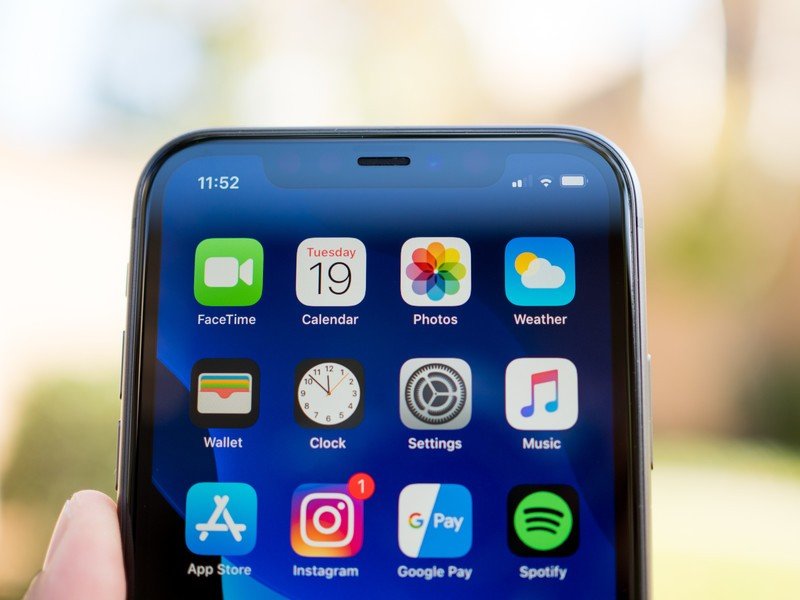
Apple was late to biometric authentication, but its face unlock system is one of the best you'll find on any phone today. Face ID is the default mode of authentication on the iPhone 11, and it relies on an IR camera sensor and a dot projector to project 30,000 invisible dots over your face, creating an accurate 3D model. The A13 Bionic's neural engine then compares the model to your facial features every time you unlock your phone.
Face ID continues to lead the way for biometric authentication on phones.
Face ID worked unerringly in the month I used the iPhone 11, and that's surprising because I've had issues with most face unlock solutions I've tried on Android over the years. I have a large beard, and for whatever reason, that always messes up facial recognition models, particularly in the dark. Even the Pixel 4 XL — which uses a similar system like Face ID — failed to authenticate my features several times in the last two weeks.
Samsung and Huawei had secure face unlock designs that were just as secure, but they ditched them to free up space at the front. Samsung's method relied on iris recognition, while Huawei used a system similar to that of Apple in last year's Mate 20 Pro.
So that leaves Google as the only Android manufacturer with a secure facial unlock system, but it isn't without its issues. Face unlock on the Pixel 4 XL works even with your eyes closed, and this move was predictably met with a backlash. Google has mentioned that it will require eye detection for Pixel 4's face unlock, but that the feature will only be rolled out in a few months' time.
Privacy first
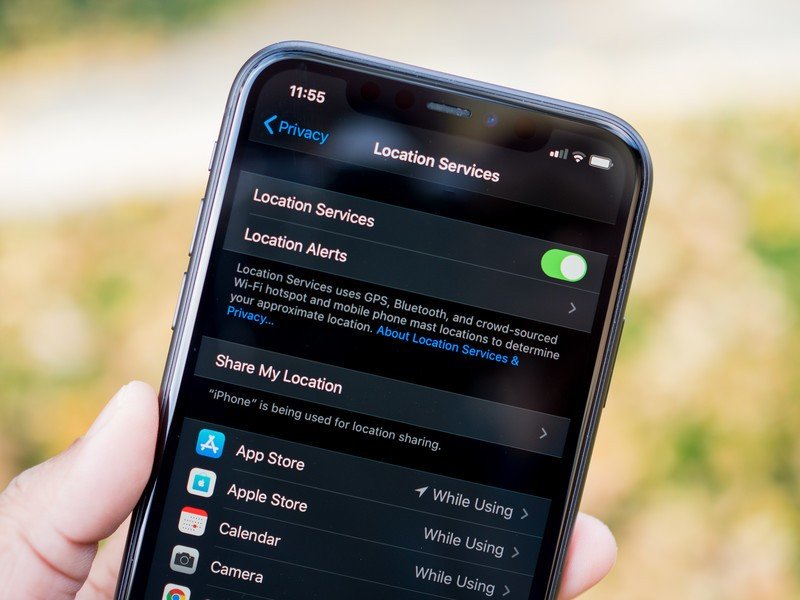
Apple has always touted privacy as a differentiator for iOS, and after using the iPhone 11, I understand what that entails. iOS 13 delivers notifications about which apps track your location in the background, and you get the ability to limit location access to when the app is running. Android 10 also offers a similar feature, but in iOS 13, you get the option of allowing location access just once to an app.
iOS 13 comes with an array of privacy-focused features that safeguard your data.
iOS 13 also locks down access to Bluetooth and Wi-Fi, and apps that need to use Bluetooth will trigger a notification. The default Maps app doesn't store a history of all the locations you've been to, and the data isn't associated with your Apple ID. Safari also comes with Intelligent Tracking Prevention that uses on-device machine learning to prevent browser fingerprinting, throwing off advertising trackers.
You're not going to see many of these features on Android because Google's entire business relies on advertising. It needs user data to deliver relevant ads, and for its part, it does a great job telling you what it does with your data. Google has gotten better at privacy — the changes to location access in Android 10 in particular highlight its commitment to privacy — but iOS is leagues ahead in this area.
Video recording you'll want to use
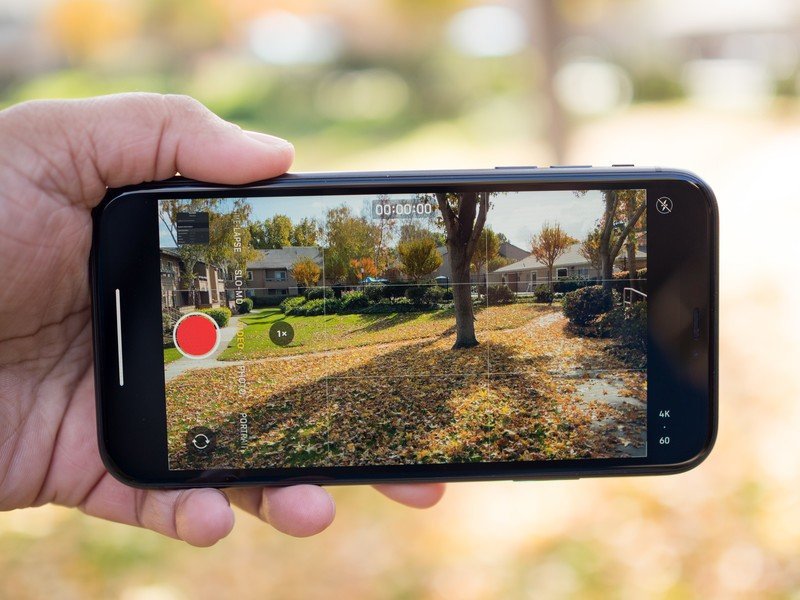
Whenever I need to take a photo, I inevitably reach for my Pixel 3 XL (the battery life on the Pixel 4 XL is horrendous and Google should feel bad for releasing it). And now, when I need to take a video, I take the iPhone 11 out. The video stabilization is better than anything I've seen on Android.
The iPhone 11 shoots 4K footage at 60fps with stereo sound, and you also get slow-mo 1080p at 240fps. That's not quite on the same level as the 960fps you get on the P30 Pro, but the quality of footage makes up for it. The feature I particularly like is where you can take a video by long-pressing on the shutter button while in Photo mode — ideal for capturing ephemeral moments.
Imaging, in general, is great on the iPhone 11 — the primary camera is on par with the Pixel 4 XL. Then there's the fact that you also get a wide-angle lens, making the phone that much more versatile. I'm still annoyed that Google is offering a 2x zoom lens on the Pixel 4 XL instead of a wide-angle shooter.
Overall, the iPhone 11 is a fantastic phone for $700. That's just $100 more than what you end up paying for the OnePlus 7T, and you get rock-solid internals, a much better camera, better battery life, continual software updates, and robust biometrics. I didn't think that I would like the iPhone 11 as much as I did, but this year's model in particular is a standout offering, and an enticing alternative if you're using an Android phone.

Harish Jonnalagadda is Android Central's Senior Editor overseeing mobile coverage. In his current role, he leads the site's coverage of Chinese phone brands, networking products, and AV gear. He has been testing phones for over a decade, and has extensive experience in mobile hardware and the global semiconductor industry. Contact him on Twitter at @chunkynerd.

